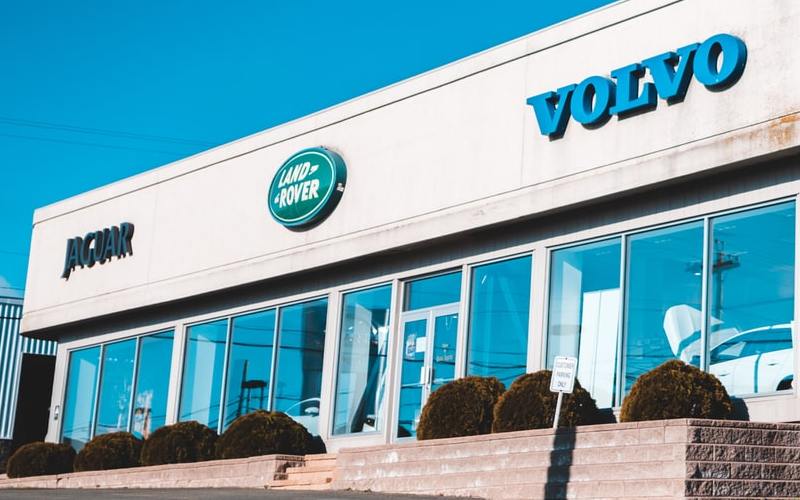If you’re in need of a company car, ute, van, or truck, a business car loan may allow you to sign on the dotted line without having to pay for the full up-front cost.
Getting organised with all the correct documentation and ensuring you fulfil all the requirements can help speed up the process, and ensure you and your employees get on the road faster.
Find out how to apply for a business car loan, the eligibility criteria, and how to improve your chances of approval.
Application process for a business car loan
A business car loan lets you buy a vehicle for your business with money loaned to you. Just like any other loan, you will be required to pay the loan amount back on a regular basis.
When it comes to getting a business car loan, there are a few financing options you can choose from such as: chattel mortgage, commercial hire purchase, and vehicle lease.
While each business vehicle finance application may vary, below is a general step-by-step process you can expect to go through:
- The customer reaches out to a lender and says they’re looking to buy car through their business.
- The lender requests information about the car, how much the customer is looking to borrow, whether they’re putting a deposit towards the purchase, and if the vehicle is in stock.
- The lender provides a quote based on the the above information e.g. expected interest rate, repayments and term.
- If the customer is happy to proceed with the quote, the lender will request the relevant documents (below) and will assess the business and servicing.
- Assuming all the documents are given the green light, the lender will put the application forward to the credit team.
- The credit team will conduct a secondary assessment to determine whether the business can service the loan. From there, the application will either be approved or rejected.
- Once approved, the letter of offer will be sent through to the customer.
Eligibility criteria for a business car loan
When you apply for a business car loan, you’ll be asked for a few documents to ensure you’re eligible. However, keep in mind these can vary depending on the lender you apply with.
- Identification - driver’s licence, birth certificate, etc.
- Australian Business Number (ABN)
- Business financial statements - determines whether your business is making enough profit to afford the vehicle (balance sheet, profit and loss statement)
- Individual tax returns for all business directors
- Information from ATO portal - shows how much tax debt you owe the government
- Credit rating
- Proof the business is GST registered
- Personal statement of position (required for each business director if there is more than one)
- Proof of vehicle insurance
If your business has been trading for less than one financial year, you may be asked to provide additional documents such as a business plan and cashflow forecasts, as your business would have a limited history of financials/trading.
This tends to be a lengthier process - lenders do a dive deep into the person who is running the business e.g. history, background, experience, personal finances.
You may also find some lenders require the vehicle to be used for business purposes only.
Reasons your business car loan application got rejected
Nobody likes to be rejected, especially when you’re oh so close to the finish line.
Here are a few common reasons your business car loan may be declined:
- Your business can’t service the loan - Essentially, does the business have adequate cash flow? If you’re not running at a profit, where is the cash to pay for the new loan? That’s what a lender will be asking. They won’t want to put a customer in more debt if they’re already losing money.
- Your business has a large tax debt - While you may not be turned away immediately, it can decrease your chances of approval.
- Too much existing debt - If you’re buried under too much debt from other loans or lines of credit, lenders may be hesitant in extending any additional funds to you. This will be reflected in your credit score and history.
- Insufficient time in business - While this isn’t a hard and fast rule breaker, lenders typically want to see the business performance/financial records anywhere from six months onwards. But remember, this varies by lender and loan type so research your options before applying.
Tips to get approved for a business car loan
Ensure all your finances are up to date
Up-to-date financial records gives the lender a clear understanding of your business income and your ability to repay a loan.
Not only can accurate and up to date information make it easier to apply for a loan, it can also ensure a quicker and smoother approval process.
Maintain a good credit history
Your credit history can make or break your application approval. Your credit activity is kept on file by credit agencies for five years. This can include any loans you have, debts, repayment history, overdue accounts, and more.
A high credit score suggests to the lender that you're a trustworthy borrower.
Ensure you have enough money to cover the costs
If you already have a business loan of some description, make sure you have enough available funds and cashflow to purchase a car in the first place.
A lender will check all your business documents to ascertain this themselves - better for you to do it first to confirm, instead of being rejected halfway through the process.
But it’s not just the purchase price of the car itself to think about. There are a number of fees and charges you’ll incur down the road - tolls, petrol, insurance, registration, servicing, and repairs.
Image by prostooleh via freepik



 Denise Raward
Denise Raward
 Harry O'Sullivan
Harry O'Sullivan

 Harrison Astbury
Harrison Astbury


